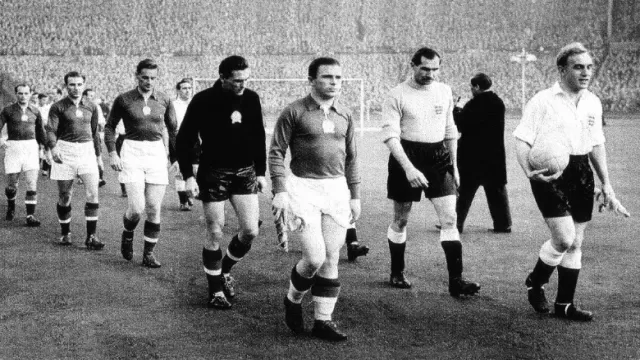Assist makers have shaped football history through their creativity, timing and unmatched vision. While goal scorers often take the spotlight, it is the playmakers who construct the foundations of victory. Every defence-splitting pass, every clever flick and every perfectly weighted through ball comes from players who see the game differently. Their contributions define eras, elevate teams and turn ordinary attacks into unforgettable moments.
This article explores five of the greatest assist providers in football history. Arranged from number five to number one, it highlights how each player influenced the sport, what made them exceptional and why their records continue to inspire. These players are more than statistics; they are architects of football’s most iconic moves.
Below is a detailed, structured look at Thomas Muller, Johan Cruyff, Pelé, Lionel Messi and Ferenc Puskás — each with their official assist totals featured in the headings, along with analysis of their styles, strengths and legacies.
5. Thomas Muller – 352 Assists

Thomas Muller has long been regarded as one of football’s most intelligent attackers. Known for his role as a Raumdeuter, or interpreter of space, Muller’s brilliance comes from his ability to drift into unoccupied zones and create unexpected angles for teammates. His assists often come from simple yet perfectly timed passes, flicks or one-touch layoffs that bypass entire defensive lines.
Muller’s creative legacy at Bayern Munich shaped a decade of domestic dominance. Whether operating behind the striker or drifting wide, he consistently found ways to supply teammates through impeccable awareness. Even without flashy dribbling or long-range passing, his movement-based creativity made him one of the most productive assist makers in modern football.
4. Johan Cruyff – 358 Assists

Johan Cruyff revolutionised football with his philosophy, intelligence and artistry on the ball. His assists were the product of unparalleled vision: he anticipated space seconds before anyone else, manipulating opponents with feints, body angles and movement that created lanes for teammates. Cruyff played the game as both thinker and creator, making him one of the most influential assist makers of all time.
At Ajax and Barcelona, his passing shaped the foundations of total football. Cruyff’s ability to orchestrate attacks from deep, thread impossible passes and read defensive structure made him a creative force unlike any other. His 358 assists reflect not only technical brilliance but a philosophical transformation of how football should be played.
3. Pelé – 369 Assists

Pelé is widely celebrated for his incredible goal-scoring record, but his creative contributions were equally outstanding. His 369 career assists showed how complete his game truly was. Often dropping deep to build play, Pelé linked midfield and attack with precision, intelligence and flair that made him a force in every phase of the game.
Whether threading eye-of-the-needle passes, setting up teammates with clever back-heels or creating chances through dribbles that collapsed entire defensive systems, Pelé’s assists defined Brazil’s golden age. His playmaking, combined with his finishing ability, made him one of the most devastating all-around attackers in football history.
2. Lionel Messi – 400 Assists

Lionel Messi’s 400 career assists stand as a testament to two decades of elite creativity. From Barcelona’s tiki-taka dominance to his resurgence at Miami, Messi’s passing vision and timing remain unmatched. He creates chances from angles most players cannot imagine — curling passes behind defenders, disguised through balls and delicate chips over high lines.
Messi’s assists come from a combination of dribbling gravity, close control and instant decision-making. Defenders collapse on him, space opens for teammates, and Messi exploits it with surgical precision. His ability to balance goal scoring and chance creation at the highest level cements him as the most complete attacker of the modern era.
1. Ferenc Puskás – 404 Assists

Ferenc Puskás leads the list with 404 recorded assists, combining lethal finishing with extraordinary distribution. A key figure for both the Mighty Magyars and Real Madrid, Puskás created chances with precision long passes, quick interplays and visionary attacking combinations that shaped the golden era of football in the 1950s and 60s.
Though statistics from his era are not as comprehensive as modern data, Puskás’s creative impact is unanimously recognised. His intelligence, left-foot precision and understanding of attacking structure made him a pioneer of forward play. With Messi closing in on this record, Puskás remains the benchmark for creative excellence in classical football.
Common Traits Among Elite Playmakers
Across eras and roles, these five legends share several qualities that define great assist makers. First, exceptional spatial awareness allows them to anticipate movement before it happens. Second, precision in execution enables them to deliver passes that carve open defences. Third, consistency under pressure ensures they create chances in tight, high-stakes matches.
Each player also demonstrated adaptability, thriving in different systems, leagues and tactical environments. Their ability to elevate teammates, influence transitions and control rhythm made them indispensable to their sides.
Understanding the Value of Assists
Assist statistics provide a glimpse into creative output, but deeper context brings clarity. Some players accumulate assists through structured systems; others rely on raw vision and individual brilliance. Evaluating an assist maker requires examining match influence, timing, movement and the quality of decision-making under pressure.
The best creators combine anticipation with execution, turning complex scenarios into simple scoring opportunities. Their assists often reflect not just technique but leadership, awareness and match intelligence.
The Evolution of Playmaking
Football has evolved drastically, yet the art of assisting remains central to the sport. From the fluid, system-driven total football of Cruyff to the compact, transition-heavy modern game shaped by players like Messi and Müller, creative roles continue to adapt. What remains constant is the importance of vision, intelligence and timing.
New generations of playmakers study these legends to understand how creativity can dictate the flow of a match. Their influence is visible in modern tactical setups that prioritise movement, overloads and passing lanes.
Conclusion
Assists illuminate the beauty of teamwork in football. They represent foresight, generosity and technical excellence — qualities embodied by Puskás, Messi, Pelé, Cruyff and Müller. Each player elevated the sport through a unique blend of creativity and intelligence, shaping how football is played and understood.
The numbers tell part of the story, but their legacies tell the rest. These creators redefined what it means to influence a match, and their achievements will continue to inspire future generations. The art of assisting lives through their brilliance, and the journey of football creativity continues to evolve.
Also Read: Dale Steyn slams Rishabh Pant for shocking brain fade shot


Disclaimer
Possible11 is a sports news and analysis platform designed purely for entertainment and educational purposes. All match previews, player insights, and team analyses are based on publicly available information and expert opinions. We do not promote or support betting, gambling, or real-money gaming in any form. Users are encouraged to enjoy our content responsibly and use it for informational purposes only.





















Give Your Feedback